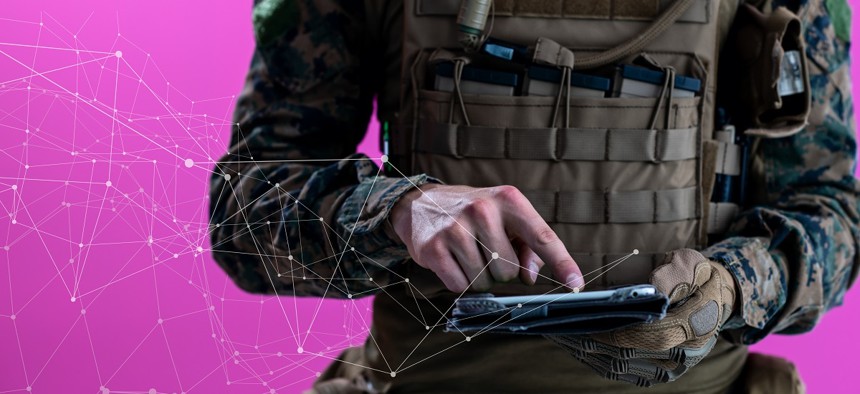DOD Official: AI and Autonomy Are Critical to the Future of War

.shock/Getty Images
The Pentagon is working to prioritize the ethical and responsible adoption of autonomous technologies across the U.S. military as it works to keep pace with global adversaries.
The Department of Defense’s recent updates to its decade-old policy on autonomous weapons will help the Pentagon better understand and prepare for the growing role of artificial intelligence in warfare, an agency official said during an event hosted by the Institute for Security and Technology on Wednesday.
Michael Horowitz, director of the Pentagon’s Emerging Capabilities Policy Office, said that last month’s changes to DOD directive 3000.09, or “Autonomy in Weapon Systems”—which was initially issued in November 2012—were largely focused on “cleaning up language to make it clear what the directive said and didn't say.”
But he added that the directive was also revised to adhere to guidance from recent Pentagon initiatives regarding the use of AI, including DOD’s Responsible Artificial Intelligence Strategy and Implementation Pathway that was rolled out last year and the DOD’s Ethical Principles for AI that were adopted in 2020.
“The revised directive makes clear that if an autonomous weapons system was to have AI-enabled capabilities, that those would need to follow those DOD AI guidelines,” Horowitz said.
In a Jan. 25 press release announcing the update to the “Autonomy in Weapon Systems” directive, DOD said the change “reflects DOD’s strong and continuing commitment to being a transparent global leader in establishing responsible policies regarding military uses of autonomous systems and artificial intelligence.”
Horowitz said that the updates to the directive, as well as the Pentagon’s growing focus on autonomous weaponry and artificial intelligence as components of the future of warfare, also align with the national defense strategy issued last year, which he called “the North Star for the way the Department of Defense thinks about future challenges.”
Horowitz noted that the strategy referred to China as America’s “pacing challenge,” and that efforts to counter Beijing’s global influence—particularly when it comes to the country’s growing technical capabilities—entail a greater focus within the Pentagon on the development and use of emerging technologies.
“And as part of the way it's thinking about the future of war, the department is interested in AI and autonomy,” he added. “These are general purpose technologies that we think are having a huge impact on the character of warfare, and the department needs to be ready for what the future might bring.”
Horowitz said this includes “increasing the speed of DOD’s ability to adopt innovation and to adopt emerging capabilities to speed the movement of technology to the battlefield, but in a safe and responsible way.”
The Pentagon has been working in recent years to integrate more advanced technologies into its military arsenal, while also doing so in a way that includes enhanced oversight and greater engagement with the private sector. This has included standing up the Chief Digital and Artificial Intelligence Office to, in part, guide the DOD’s adoption of AI, as well as the establishment of Horowitz’s Emerging Capabilities Policy Office to help deploy innovative technologies across the agency.
Horowitz said that DOD’s efforts to better engage with the commercial tech sector have also led to the establishment of the Defense Innovation Unit in 2015 “to bring commercial technology into the Pentagon faster,” as well as the newly announced Office of Strategic Capital, which Horowitz said is “focused more on sort of investing in earlier stage companies.”
The Pentagon is also continuing to focus on enhancing the U.S. military’s capabilities by placing more of an emphasis on leveraging technological advancements. Horowitz cited the DOD’s Feb. 3 release of a new technology vision that outlined 14 critical tech priorities for the Pentagon as a continuation of ongoing efforts to better harness AI and other emerging technologies.
“Those technology priorities really guide the way that the department focuses from an investment perspective and a speed perspective,” Horowitz said. “And one of those is trusted AI and autonomy. And that is something, I think, everybody recognizes will play a critical role in the future of warfare, even if there are disagreements.”






